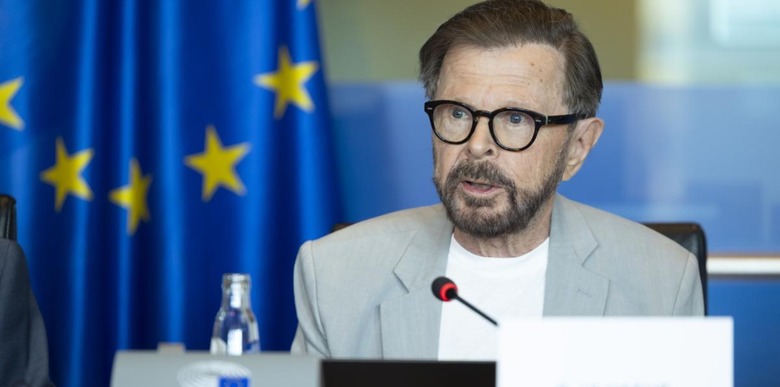ABBA's Björn And EU Artists Push For Creators' Rights In AI Act
ABBA's cofounder and president of the International Confederation of Societies of Authors and Composers (CISAC), Björn Ulvaeu, and other EU creators met with policymakers to ensure transparency, consent, and remuneration for creators in the generative AI market.
The meeting occurs as EU creators express concerns about the bloc's AI Act. Under it, creators might lose ownership of their creations as AI companies might use them without consent.
Björn Ulvaeus was joined by European creators, including Marika, Alice Wonder, Patrick Sigwalt, and Brice Homes, to ensure the EU AI Act remains true to its original purpose, which is "leading on ethical, human-centric AI that supports creativity, and its implementation leads to creation of a functioning licensing market that ensures appropriate remuneration of creators."
"We must never be seduced by the false idea that, in the headlong rush to the new AI world, creators' interests must be cast aside. That approach won't work – not for the creative sector, not for the economy, or for culture, or even for the tech sector, whose vast AI revenues, let's not forget, derive from copyrighted creative works made by humans," said Ulvaeus. "The vision has to be a win-win for creators and the tech industry. That can only happen with legislation that truly and effectively safeguards creators."
With that, the delegation's agenda includes:
- A meeting with European Parliament president Roberta Metsola, so creators can highlight urgent concerns about the possible changes in the AI Act.
- A keynote intervention during the European Parliament Committee on Culture and Education's Public Hearing "Empowering Creators in the Age of AI."
- Meeting with EU Commissioner for Culture Glenn Micallef
- An evening event at the European Parliament to talk about the legislation.
This is not the first time ABBA's cofounder has discussed the dangers of AI. While the band has always pushed new technologies and offered some of the greatest tech concerts in the world with the London ABBA Voyage experience, he's been critical of using AI without legislation and crediting the original creators.
While we've just seen several new AI uses during the Google I/O, Ulvaeus and European creators want to ensure one thing: They own their content and that it can't be used without their permission.
